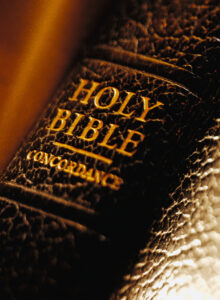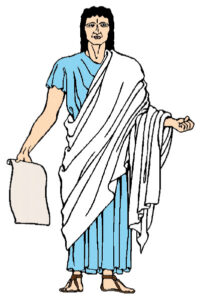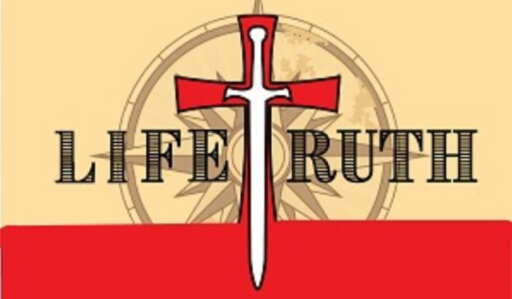To briefly review:
Jesus encountered a man born blind and healed him. Jesus initiated the contact. Using mud and washing it off, the healing involved both a spiritual and physical process.
- the man was interrogated. Who was Jesus? A prophet?
- his parents were interrogated. Is this your son? Was he born blind?
- Summoned back to the Pharisees, the man finds himself exiled and vilified.
John 9:35-41

Back in verse 1, Jesus saw and approached the blind man. Here, in verse 35, he sought him out again and asked a question. “Who is the son of man? Did the blind man know who that was? Did the man believe in him?”
The man didn’t know, but he would like to believe in him. Remember, up to this time, the blind man had never seen Jesus. He had only heard his voice. He was blind when the mud pack went onto his eyes. Jesus was gone by the time he washed and returned. He had to face the Pharisees, knowing only that he had been healed, but knowing nothing about his healer.
Jesus told him, “Here I am. You’re seeing me now and talking to me.” In effect, admitting that he was the son of man. Not simply a prophet, or a teacher, or a healer.
Unlike the unwilling religious leaders who had made up their minds to condemn Jesus and any of his supporters, this man had Instant recognition. He immediately believed and worshipped. That means he fell to his face to bow down to pay tribute to Jesus.
Refer back to verse 22:
His parents said this because they were afraid of the Jews; for the Jews had already agreed that if anyone confessed Him to be Christ, he was to be put out of the synagogue.
These same Jews who reviled the blind man. for suggesting that they might want to be disciples in verse 28. the same Jews who kicked him out for making too much sense at Jesus’s godly works in verse 34. This blind man had an instant, clear vision, physically and spiritually. He called Jesus’ lord,
Just as clearly as the blind man recognized Jesus, Jesus just as clearly states his mission.
And Jesus said,
“For judgment, I came into this world,
so that those who do not see may see, and that those who see may become blind.”
Jesus came to judge. Not necessarily to spout warm fuzzies of love to the whole world. He came to blind open eyes, and open blind eyes.
All through Jesus’s teaching, there were always mentions of some who believed, and some who did not, even among the Pharisees. After being cast out of the temple, Jesus and the blind man were still outside, and because of the Pharisees. Did they have a sudden wake-up call to believe? Were they just curious to find out what was being said? They didn’t respond by challenging, reviling, or otherwise being contentious.

On the other hand, they seem hesitant to call him lord or bow down. They seem to earnestly question whether they have had their eyes shut though.
the disciples would later ask, “Is it I?” Regarding the betrayal.
A similar question came up in Matthew 19:27,28
27 ¶Then Peter said to Him, “Behold, we have left everything and followed You; what then will there be for us?”
28 And Jesus said to them, “Truly I say to you, that you who have followed Me, in the regeneration when the Son of Man will sit on His glorious throne, you also shall sit upon twelve thrones, judging the twelve tribes of Israel.
So, were these believing Jews or not?
The answer comes in Jesus’ response.
Jesus said to them,
“If you were blind, you would have no sin;
but since you say, `We see, ´ your sin remains.
The Pharisees were blind in their self-righteousness, following the letter of the law. Faith is knowing that the law can’t save. Salvation comes from Jesus’ righteousness, not ours. As long as we see our righteousness, we remain blind to eternal salvation.

Credits
consider supporting the podcast through our Patreon page.
feel free to drop us an email, use the comments on the show note page, or call our voicemail at (401)753-4844.
Follow us on social media, and join us in what we’re doing there.
Twitter: @HPNCast
Facebook Page: @LifeTruthPage
Facebook Group: HPNCast Community

Thanks to the recorded comments from J Vernon McGee. His ministry and daily bible study live on through Through the Bible Ministries (ttb.org)
Scriptures in the show notes and episode are quoted from the King James Version, except when read by Keith, then it’s the ESV or NASB.
Scripture quotations are from The ESV® Bible (The Holy Bible, English Standard Version®), copyright © 2001 by Crossway, a publishing ministry of Good News Publishers. Used by permission. All rights reserved.”
“Scripture is taken from the NEW AMERICAN STANDARD BIBLE®,
Copyright © 1960,1962,1963,1968,1971,1972,1973,1975,1977,1995
by The Lockman Foundation. Used by permission.”
Podcast: Play in new window | Download (Duration: 50:37 — 46.3MB)
Subscribe: Apple Podcasts | Amazon Music | Podchaser | RSS | More

